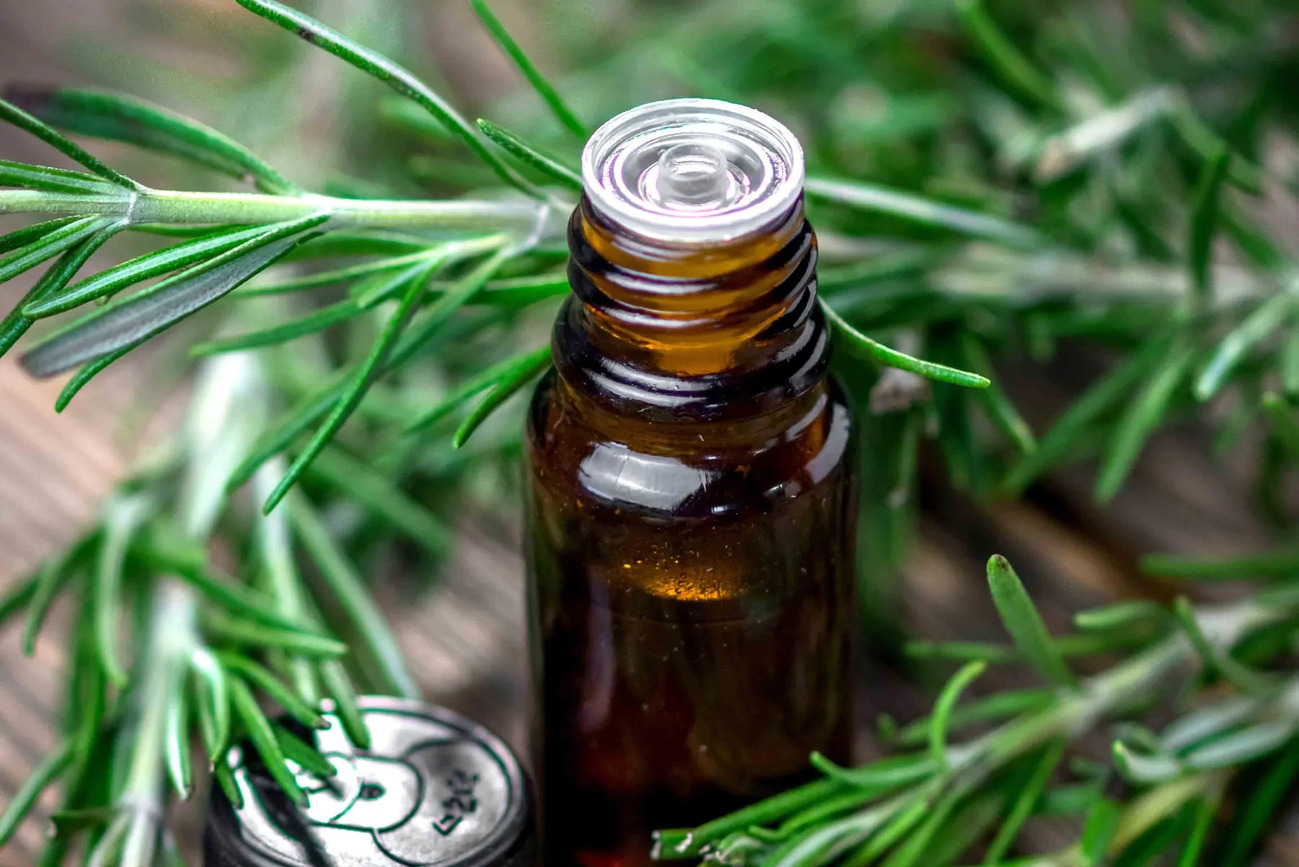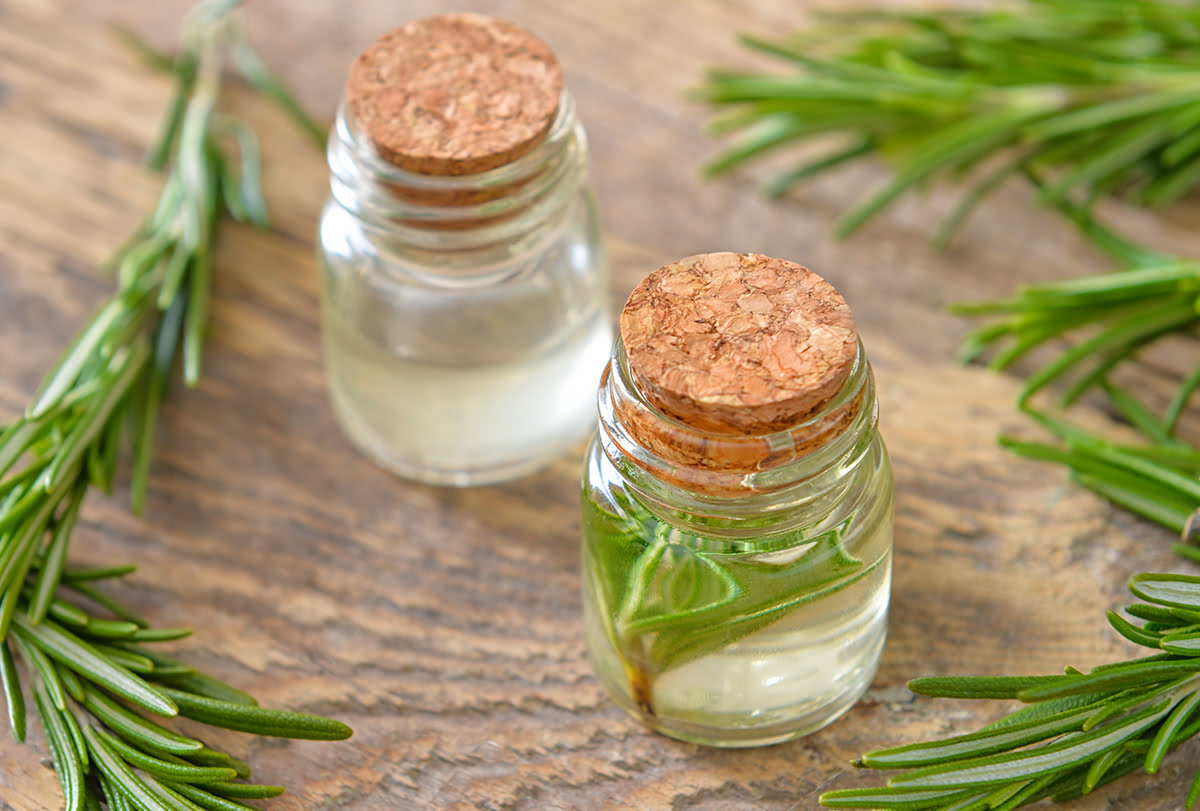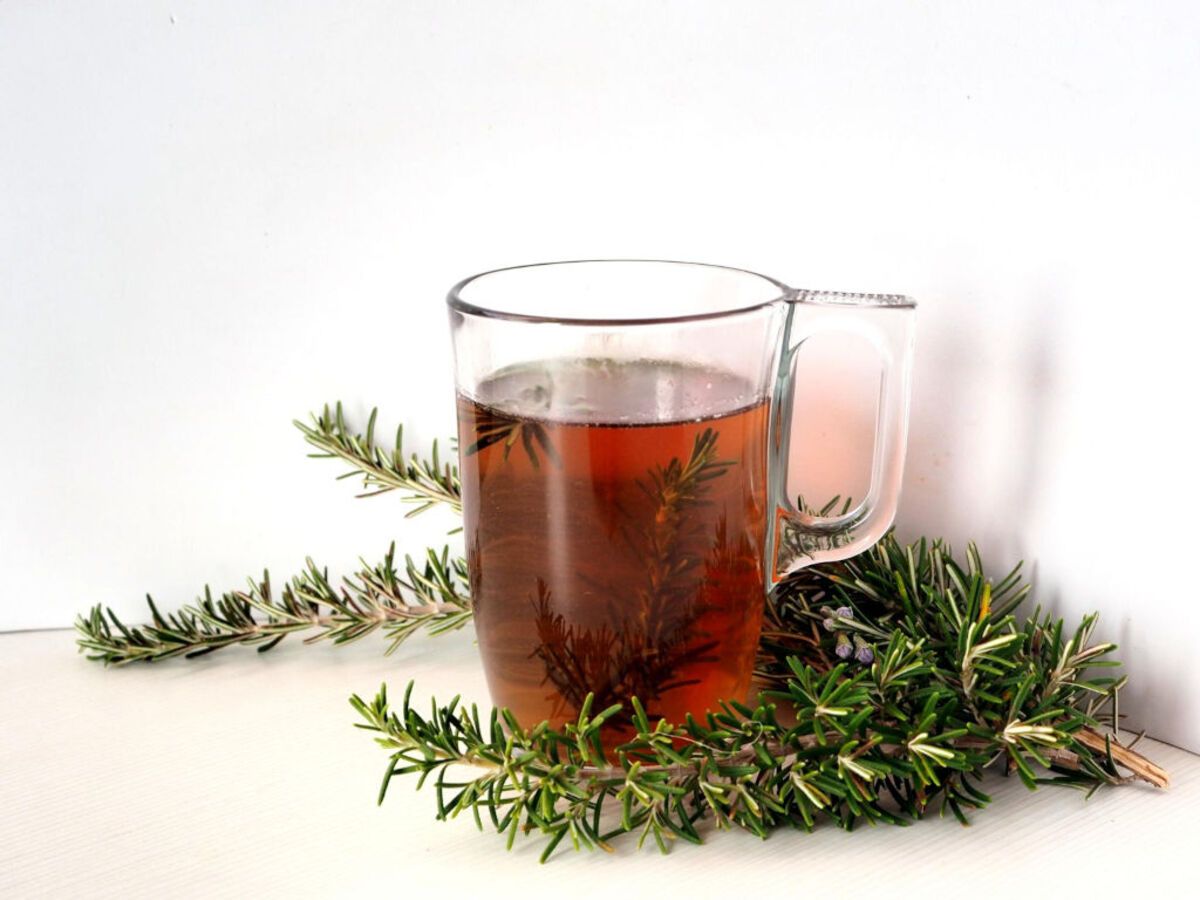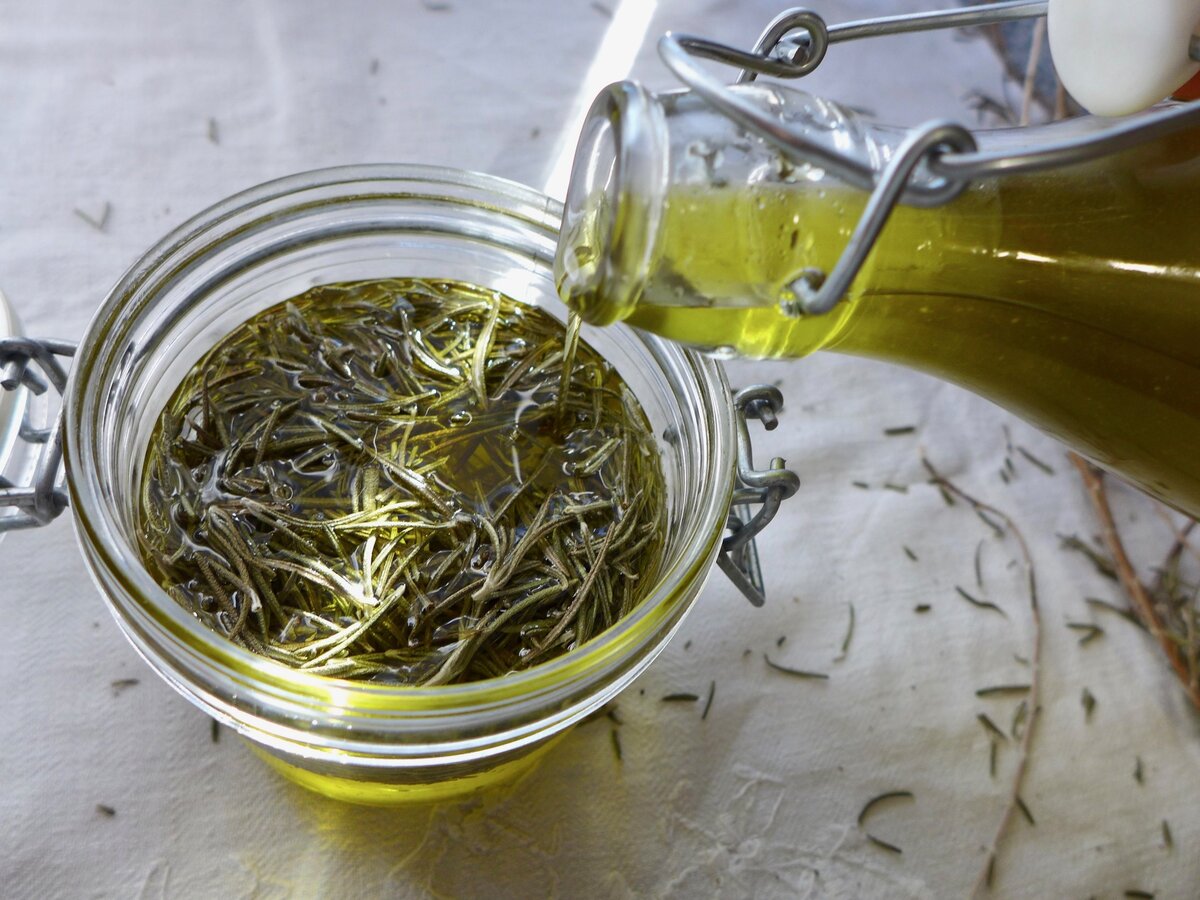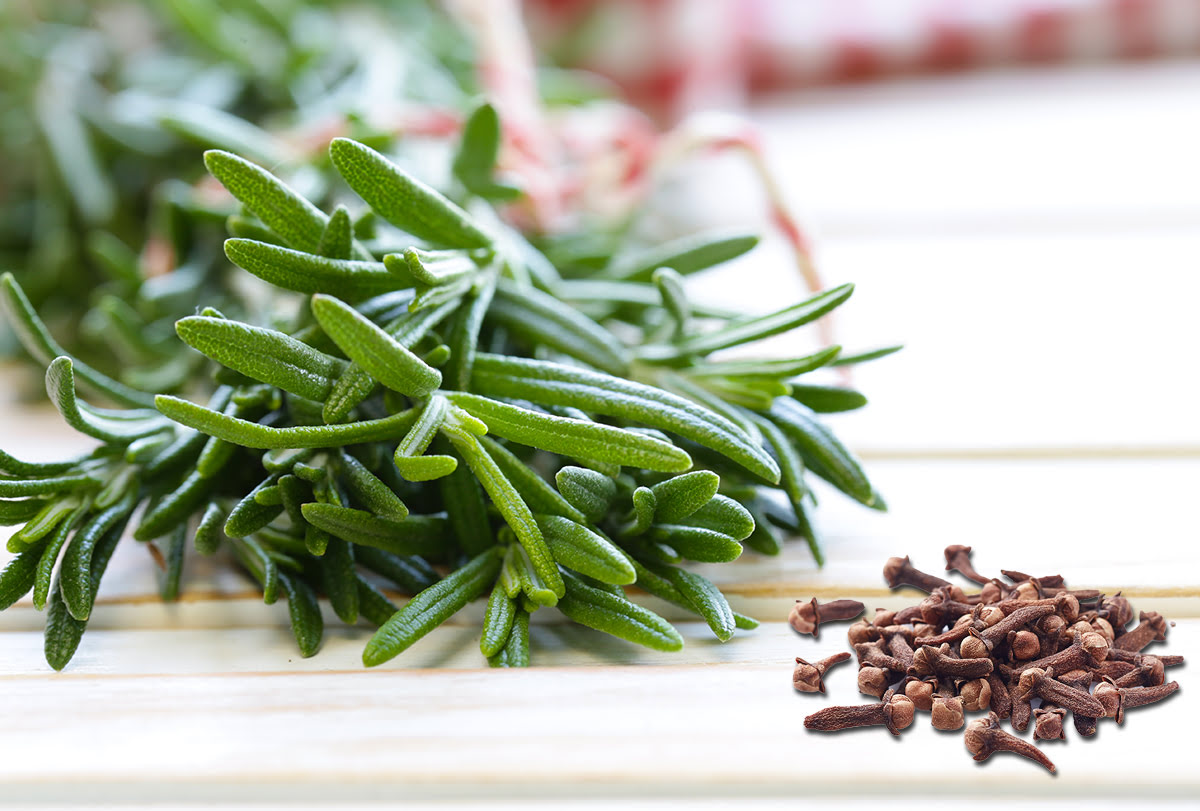Home>Gardening Techniques>DIY Projects>How To Make A Rosemary Tincture


DIY Projects
How To Make A Rosemary Tincture
Published: February 1, 2024
Learn how to make a DIY rosemary tincture with this step-by-step guide. Enhance your DIY projects with the power of natural ingredients.
(Many of the links in this article redirect to a specific reviewed product. Your purchase of these products through affiliate links helps to generate commission for Chicagolandgardening.com, at no extra cost. Learn more)
Table of Contents
Introduction
Welcome to the world of DIY projects, where you can unleash your creativity and accomplish amazing things with your own two hands. Whether you’re a seasoned DIY enthusiast or just starting out, there’s always something new to learn and explore. And one of the most rewarding projects you can undertake is making your own rosemary tincture.
Rosemary, known for its aromatic fragrance and versatile uses, has been used for centuries in traditional medicine and culinary applications. Creating a rosemary tincture allows you to harness the potent properties of this herb in a concentrated liquid form. Not only is it a simple and cost-effective way to incorporate rosemary into your daily routine, but it also offers a wide range of health and wellness benefits.
In this article, we’ll dive into the world of rosemary tinctures, exploring their benefits, the ingredients needed to make one, and a step-by-step guide on how to create your own. We’ll also discuss the various uses for rosemary tinctures and provide some precautions to keep in mind. So, let’s roll up our sleeves and get ready to embark on this DIY project that will not only elevate your wellness routine but also inspire your inner herbalist.
Benefits of Rosemary Tincture
Rosemary tinctures offer a myriad of benefits for both your physical and mental well-being. Here are some of the key advantages that make it worth incorporating into your daily routine:
- Improved Digestive Health: Rosemary has long been associated with aiding digestion. When consumed as a tincture, it can help soothe an upset stomach, relieve bloating, and promote healthy digestion. It can also stimulate bile production, which aids in the breakdown of fats.
- Enhanced Cognitive Function: The aroma of rosemary has been linked to improved memory and concentration. Taking a rosemary tincture may enhance cognitive function, boost focus, and increase mental clarity. It can be especially beneficial for students, professionals, and anyone looking to improve their cognitive performance.
- Immune System Support: Rosemary contains phytochemicals and antioxidants that support a healthy immune system. Regularly consuming rosemary tincture can help strengthen the body’s defense against infections, viruses, and bacteria, keeping you in optimal health.
- Natural Stress Relief: The scent of rosemary has calming properties and is known for its ability to reduce stress and anxiety. Incorporating a rosemary tincture into your routine can provide a natural and soothing way to relax, unwind, and promote overall emotional well-being.
- Anti-inflammatory Effects: Rosemary has anti-inflammatory properties that can help reduce inflammation in the body. This can be particularly beneficial for individuals suffering from joint pain, muscle soreness, or conditions such as arthritis. Regular use of a rosemary tincture may help alleviate inflammation and associated discomfort.
These are just a few of the many benefits that rosemary tinctures offer. By incorporating this herbal remedy into your daily routine, you can experience a wide range of positive effects on your health and wellness.
Ingredients for Making Rosemary Tincture
To make your own rosemary tincture, you’ll need just a few simple ingredients. Here’s what you’ll require:
- Fresh Rosemary: Start with a bundle of fresh rosemary sprigs. It’s best to use organic rosemary to ensure the highest quality and avoid any potential pesticides or chemicals.
- High-proof Alcohol: You’ll need a high-proof alcohol such as vodka or grain alcohol. This is necessary for extracting the medicinal compounds from the rosemary. Aim for a high alcohol percentage, preferably 80 proof or higher.
- A Clean Glass Jar: Choose a glass jar with a tight-fitting lid to store your tincture. Ensure the jar has been thoroughly cleaned and sterilized to maintain the purity of the tincture.
- A Sharp Knife or Scissors: You’ll need a tool to cut the rosemary sprigs into smaller pieces, facilitating the extraction process. A sharp knife or scissors will work well for this task.
- A Label and Pen: It’s essential to label your jar with the date and contents of the tincture. This will help you keep track of the preparation time and ensure you’re using it within a reasonable timeframe.
That’s it! With these basic ingredients, you’re ready to start making your homemade rosemary tincture. It’s worth noting that while these are the fundamental ingredients, you can also get creative and add extra herbs or spices to enhance the flavor and medicinal properties of your tincture. However, for a simple and pure rosemary tincture, the ingredients listed above are all you need.
Step-by-Step Guide to Making Rosemary Tincture
Now that you have gathered your ingredients, let’s go through the step-by-step process of making your own rosemary tincture:
- Prepare the Rosemary: Start by washing the fresh rosemary sprigs thoroughly to remove any dirt or debris. Dry them gently with a clean towel and trim off any woody stems. Chop or crush the rosemary into smaller pieces to aid in the extraction process. You can adjust the size of the pieces based on your preference.
- Fill the Glass Jar: Place the prepared rosemary pieces into the glass jar. Fill the jar about three-quarters full, leaving some space for the alcohol. Make sure the rosemary is packed loosely, allowing the alcohol to penetrate and extract the medicinal compounds effectively.
- Add the Alcohol: Pour the high-proof alcohol into the glass jar, fully covering the rosemary. Ensure all the rosemary is submerged in the alcohol, as this is crucial for proper extraction. Use enough alcohol to completely cover the herbs, but be mindful not to overflow the jar.
- Seal and Label the Jar: Close the lid tightly on the jar, ensuring it is securely sealed. Shake the jar gently to mix the rosemary and the alcohol together. Then, label the jar with the current date and the contents of the tincture.
- Store in a Dark Place: Place the jar in a cool, dark location, such as a pantry or cupboard. Sunlight can degrade the medicinal properties of the tincture, so it’s important to store it in a light-resistant environment. Let the mixture steep for at least four to six weeks, allowing the alcohol to extract the beneficial compounds from the rosemary.
- Shake the Jar Periodically: During the steeping process, shake the jar gently every few days. This helps to agitate the mixture and encourage optimal extraction. You’ll notice the liquid gradually taking on a greenish hue as the herbs infuse into the alcohol.
- Strain and Bottle: After the steeping period is complete, strain the tincture using a fine-mesh sieve or cheesecloth. Squeeze out the liquid from the rosemary, ensuring you extract as much of the tincture as possible. Transfer the strained tincture into a clean glass bottle or dropper bottle for storage.
Now that you have successfully made your rosemary tincture, remember to label the bottle with the date and contents. Store it in a cool and dark place to maintain its potency and quality. Enjoy the benefits of your homemade rosemary tincture by incorporating it into your daily routine!
Different Uses for Rosemary Tincture
Rosemary tincture is a versatile herbal remedy that can be used in various ways to enhance your health and well-being. Here are some common uses for rosemary tincture:
- Oral Consumption: One of the most common ways to use rosemary tincture is by taking it orally. You can add a few drops of the tincture to a glass of water or juice and consume it directly. This allows the beneficial compounds in rosemary to be absorbed into your system, promoting overall health.
- Culinary Purposes: Rosemary tincture can be incorporated into your cooking and baking. Add a few drops to soups, stews, or marinades to infuse your dishes with the earthy, aromatic flavor of rosemary. It can elevate the taste profile of various recipes while providing the added health benefits.
- Topical Application: Rosemary tincture can also be applied topically for its skin and hair benefits. Dilute a few drops of the tincture in a carrier oil, such as coconut or jojoba oil, and apply it to your scalp to promote hair growth and combat dandruff. It can also be used as a facial toner to tighten the skin and reduce the appearance of blemishes.
- Aromatherapy: Due to its invigorating scent, rosemary tincture can be used in aromatherapy. Add a few drops to a diffuser or humidifier to fill your space with the refreshing aroma of rosemary. Inhaling the scent can help improve focus, uplift the mood, and relieve stress and fatigue.
- DIY Cleaning Products: Incorporating rosemary tincture in DIY cleaning solutions is another fantastic way to benefit from its antibacterial and antifungal properties. Mix a few drops of the tincture with water, vinegar, and essential oils to create an all-natural and effective cleaner for surfaces, floors, and bathroom fixtures.
These are just a few examples of the many ways you can use rosemary tincture. Get creative and explore different applications to find what works best for you. Just remember to start with small amounts and gradually increase if necessary, and always consult with a healthcare professional before using rosemary tincture for any specific health concerns.
Precautions and Side Effects
While rosemary tincture offers numerous health benefits, it’s essential to exercise caution and be aware of potential precautions and side effects. Here are a few important points to keep in mind:
- Allergies: Some individuals may be allergic to rosemary or other plants in the Lamiaceae family. If you have a known allergy to rosemary or similar herbs, it’s advisable to avoid using rosemary tincture.
- Drug Interactions: Rosemary may interact with certain medications, such as blood thinners or antiplatelet drugs. If you’re taking any medications, it’s important to consult with a healthcare professional before using rosemary tincture to avoid any potential negative interactions.
- Pregnancy and Breastfeeding: Pregnant women and those who are breastfeeding should exercise caution when using rosemary tincture. While culinary use of rosemary in moderation is generally considered safe, high doses or concentrated forms such as tinctures should be avoided. Consult with a healthcare professional before using rosemary tincture during pregnancy or while breastfeeding.
- Skin Sensitivity: Direct application of undiluted rosemary tincture to the skin may cause irritation or allergic reactions in some individuals. Always perform a patch test and dilute the tincture in a carrier oil before applying to the skin. If any adverse reactions occur, discontinue use immediately.
- Internal Use: When taking rosemary tincture internally, start with small amounts and monitor your body’s response. High doses may cause digestive discomfort, such as stomach upset or nausea, in some individuals. If you experience any adverse effects, reduce the dosage or discontinue use.
As with any herbal product, it’s important to use rosemary tincture in moderation and listen to your body’s response. If you have any underlying medical conditions or concerns, it’s recommended to consult with a healthcare professional before incorporating rosemary tincture into your routine.
By understanding these precautions and using rosemary tincture responsibly, you can safely enjoy its benefits and maximize its potential for improving your health and well-being.
Conclusion
Embarking on the journey of making your own rosemary tincture can be a rewarding and empowering experience. From its numerous health benefits to its versatility in culinary and aromatherapy uses, rosemary tincture offers a range of ways to enhance your well-being.
By following a few simple steps and gathering the necessary ingredients, you can create a homemade rosemary tincture that captures the essence and therapeutic properties of this aromatic herb. Whether you choose to consume it orally, incorporate it into your cooking, or use it topically, rosemary tincture can contribute to improved digestion, enhanced cognitive function, immune support, natural stress relief, and anti-inflammatory effects.
It’s important to be aware of precautions and potential side effects, such as allergies, drug interactions, and skin sensitivity, and seek guidance from a healthcare professional if you have any concerns or specific health conditions.
So, why not unleash your inner herbalist and embark on this DIY project? Create your own rosemary tincture and explore the various ways to incorporate it into your daily routine. Enjoy the benefits of this versatile herbal remedy and take a step towards a healthier and more natural lifestyle.
Remember, as with any herbal product, it’s always best to start with small amounts and monitor your body’s response. Listen to your body, use rosemary tincture responsibly, and discover the incredible power of this herb in your own personal journey of self-care and wellness.
